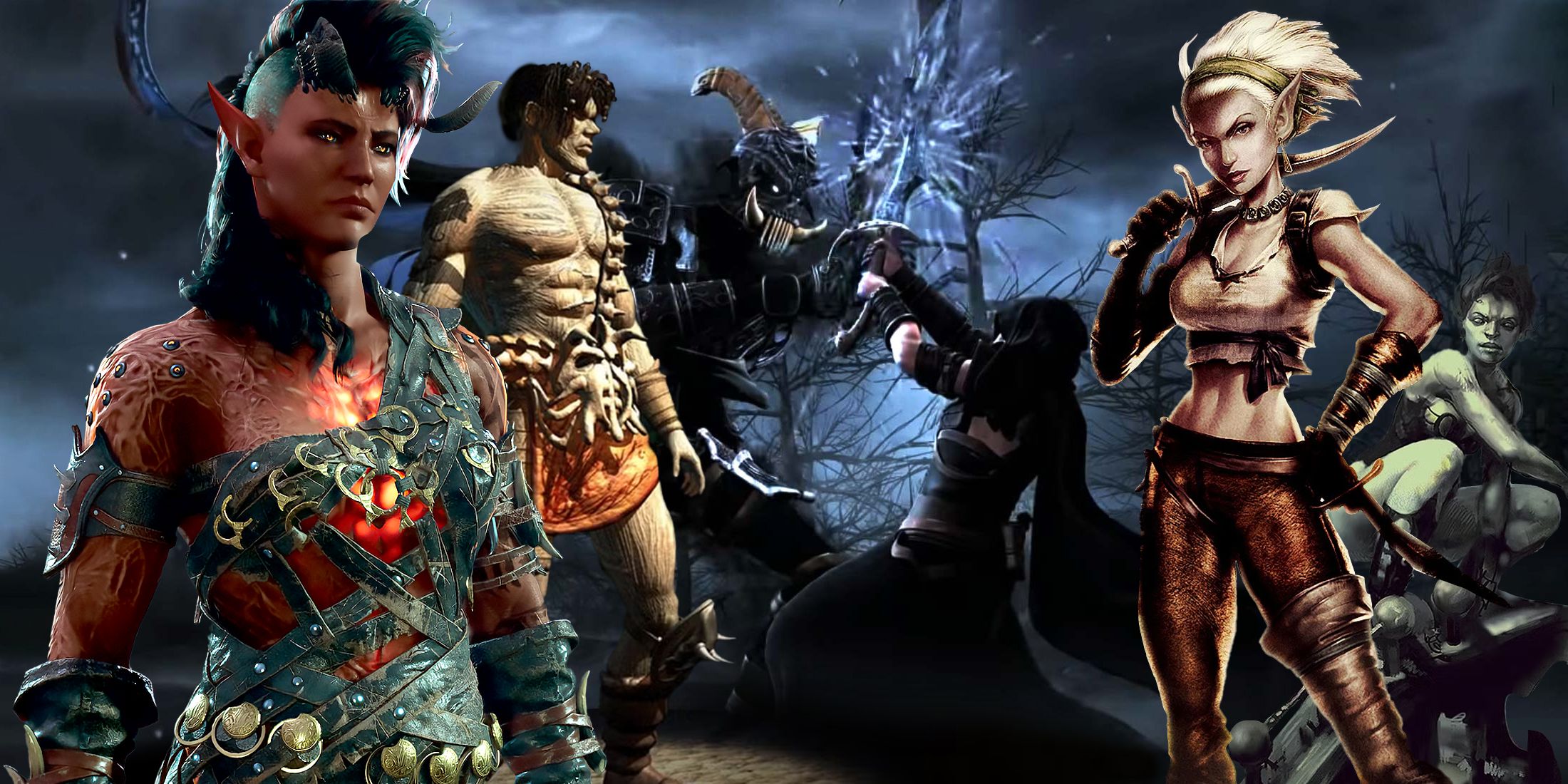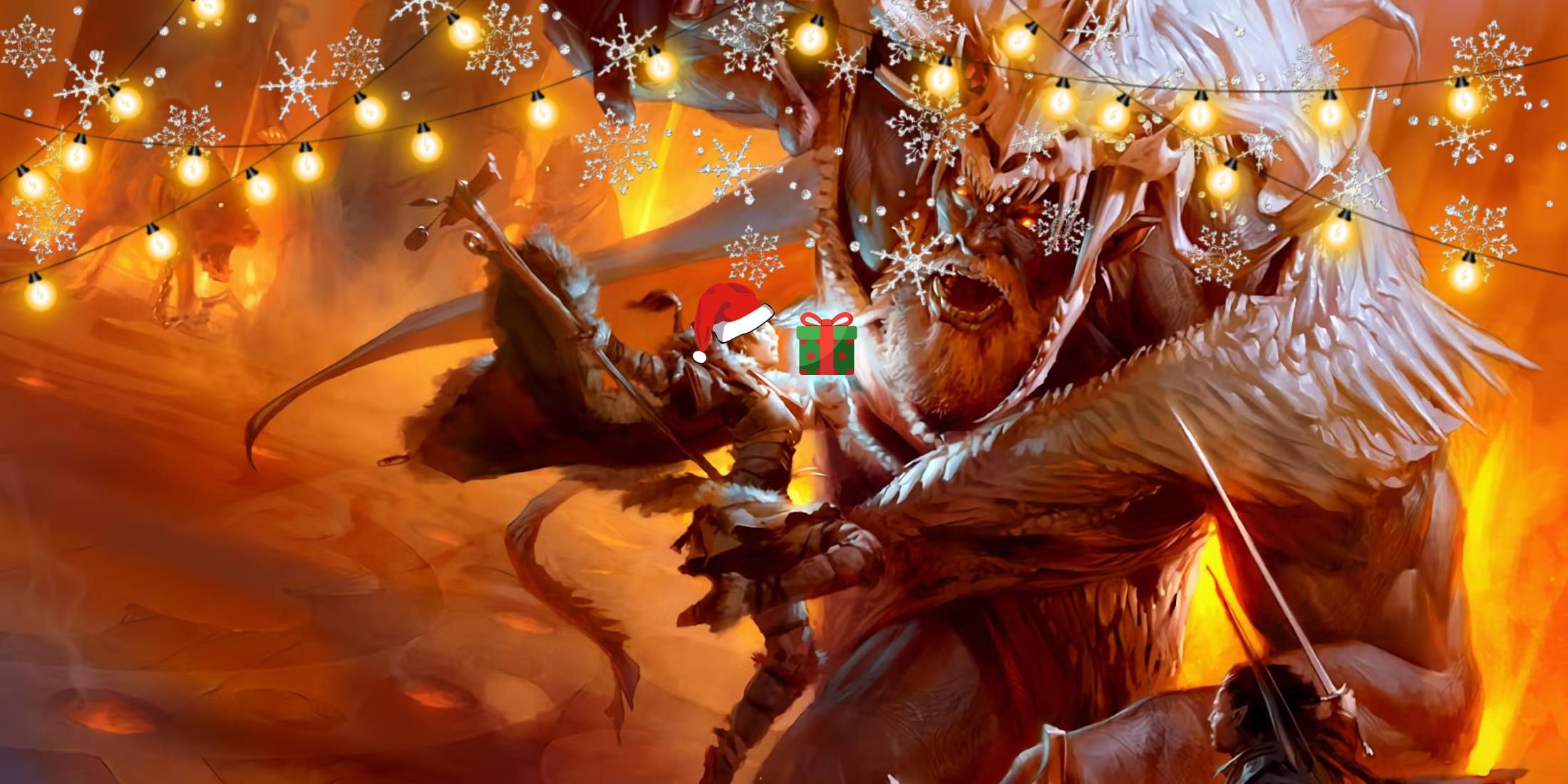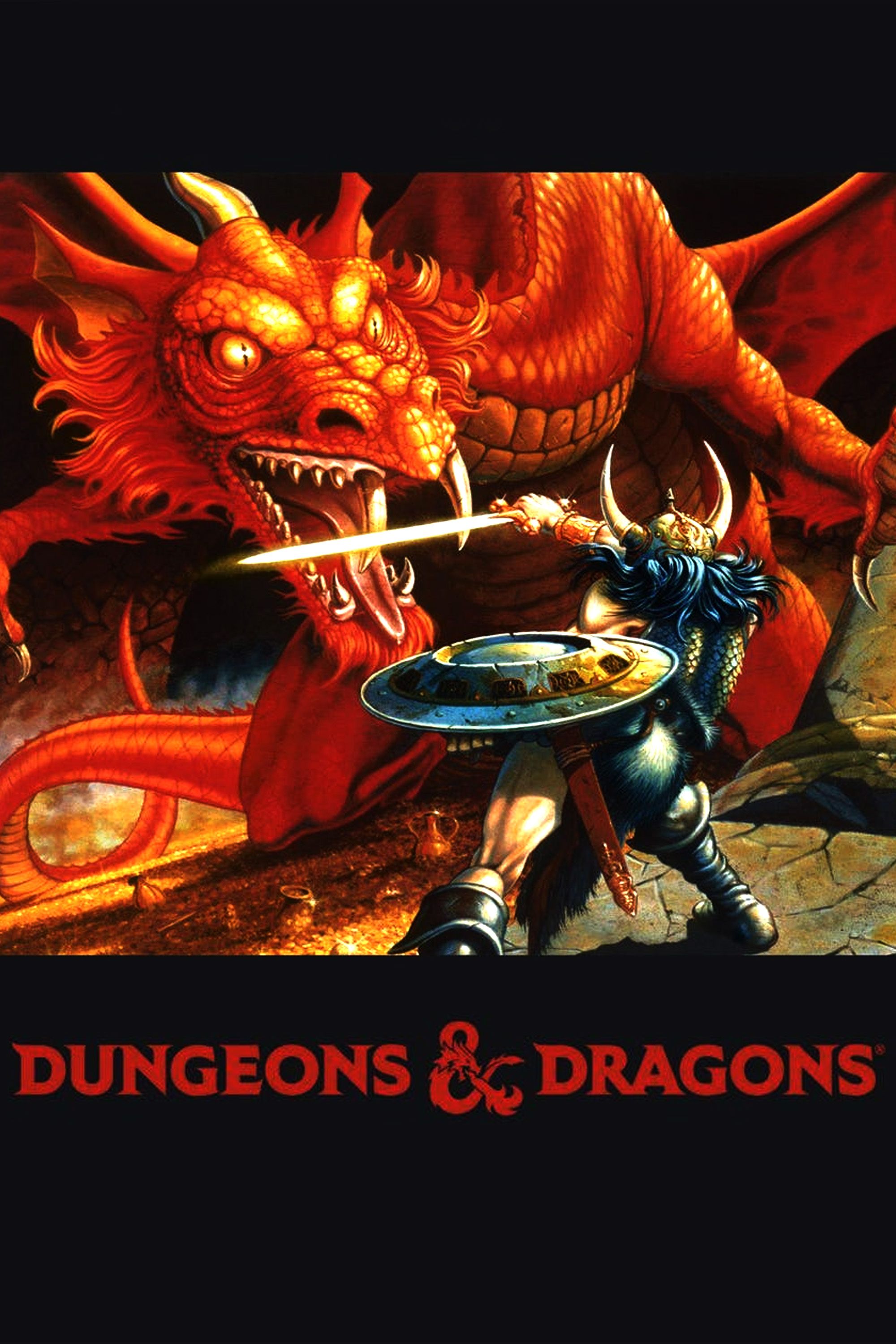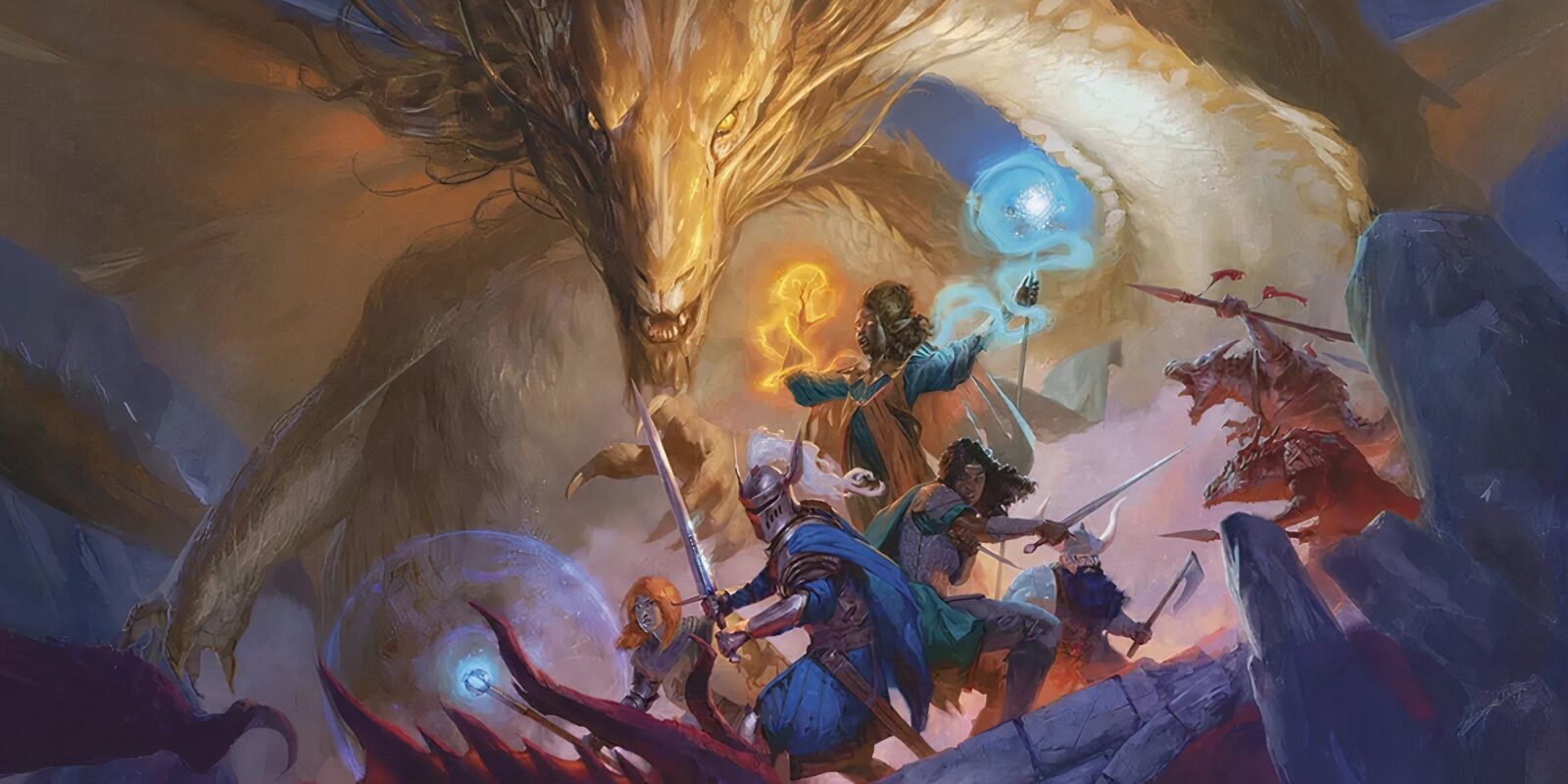Dungeons and Dragons received its first major update in ten years in 2024 with the 2024 Player’s Handbook. The release of the new handbook overhauled the core classes and many of the basic rules for playing Dungeons and Dragons, changing many of the core elements of the game, from building new characters to playing out combat encounters to simply roleplaying conversations with NPCs.
With the release of the 2024 Player’s Handbook that brought massive changes to encounters, classes, species, and backgrounds, Dungeons and Dragons fans both new and veteran may feel intimidated coming to the table. However, much of the gameplay has been streamlined to make Dungeons and Dragons more accessible than ever before. With some unwritten rules in mind, any session will become hassle-free.

Related
10 Most Immersive Dungeons And Dragons Games, Ranked
D&D has inspired many video games throughout the years, but the following ones excel the most at creating an immersive atmosphere.
Creating DnD Campaigns and Characters That Last
Include a Session Zero
This was important before but, with so many players unfamiliar with the new rules, hosting a Session Zero has become essential. Session Zero is a session that takes place before the actual campaign begins, and is a space where the DM and players can set expectations for the campaign.
Expectations can include things such as how DnD works, the likelihood of death for player characters, balancing the party, the brutality the players can expect or want from combat, and other etiquette of gameplay. It’s a good idea to have one of the players or the DM write down what everyone agrees on, so that if there are disagreements later in the campaign, it’s easy to point back to what was agreed upon in Session Zero. Session Zero also doesn’t have to be a once-off. If a campaign spans across several years, reconvening occasionally to have a refresher on the rules and see what works and what doesn’t is often immensely helpful for both the DM and players.
Build Characters with Purpose
Several of the biggest changes in the 2024 Player’s Handbook involve character creation, including the designation of race to species, the move of Ability Score bonuses from race to background, and the bonus each species offers. With these changes, it’s easier for new players concerned with stats to first select their background and class, then to select their species. Building a character with a set backstory, goals, and motivations can make a world of difference when starting.
Players who have characters that have clear and simple goals, and who communicate with the DMs make a world of difference in their campaign, especially if the campaign is homebrew. Dungeons and Dragons is fundamentally a collaborative effort, even if the DM is running the story, and player characters with goals and motivations make a world of difference in any campaign. Players who are struggling to create a character shouldn’t hesitate to reach out to their DM to ask for help in building their character.
Approaching the Rules During a Dungeons and Dragons Tabletop Session
Put Storytelling First
Many of the changes in the 2024 Player’s Handbook involve accommodating roleplaying and storytelling. Inspiration points are now called heroic inspiration and, instead of giving Advantage during combat or during a Skill roll, it lets players reroll any D20. This incentivizes players to take risks when roleplaying, and encourages DMs to create scenarios that tests player potential and creativity.
Reward Good Player Behavior
DMs should reward players when they risk it all with memorable storytelling moments and good loot, which should encourage players to have their characters go beyond their boundaries. That said, players who ignore obvious red flags and put the party in danger repeatedly should not be rewarded, the ground rules for which should be established during Session Zero.
Create Hybrid Rulesets
The Artificer remains a popular class, but was not included in the 2024 Player’s Handbook. When considering classes or subclasses that have not been included, a hybrid approach could be adopted at the table, where applicable rules from the 2014 Player’s Handbook are applied.
Approach the Rules with Flexibility
The main goal of DnD‘s rulesets is to give the best experience of Dungeons and Dragons possible, and one of the purposes of having a DM is to give a fair ruling in scenarios. Sometimes, the rules don’t cover every scenario, and they don’t have to be followed to the letter. Giving players some grace when the situation allows, in order to give players the best experience and to improve the storytelling of the campaign is often the better call than following the rules to the letter, just for the sake that the rules are obeyed.

Related
Dungeons and Dragons: Christmas One-Shot Ideas
Dungeons & Dragons DMs can sprinkle some Christmas cheer at the game table with a festively-themed one-shot adventure.
Prepare for New Monster Stats and Encounters
While the 2024 Player’s Handbook was released in September, its matching Monster Manual won’t be released until February 2025. The new Monster Manual will feature new stat blocks, challenge ratings, encounters, and combat rules for monsters and creatures both new and old, and is sure to revolutionize Dungeons and Dragons campaigns for the foreseeable future.
With the new Monster Manual, the new era of Dungeons and Dragons will officially be upon players and DMs, and it will be difficult to stick with the 2014 version of DnD. While the 2014 version had several things that were worth keeping, and many DMs and players will no doubt want to retain in their campaigns, the 2024 Player’s Handbook has streamlined much of its content to make it more accessible than ever before, and its emphasis on storytelling and roleplaying has been welcomed by many.

Dungeons and Dragons
Created by Gary Gygax, Dungeons & Dragons is a tabletop game in which players craft their own worlds and band together to take on adventures through mysterious realms outlined in companion materials. One of the best role-playing games ever made, it has been adapted into a variety of video games and other media.
- Franchise
- Dungeons & Dragons
- Original Release Date
- 1974-00-00
- Designer
- E. Gary Gygax , Dave Arneson












Leave a Reply